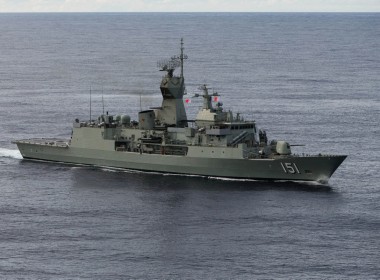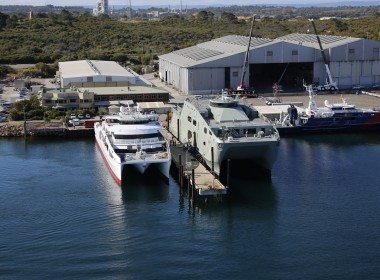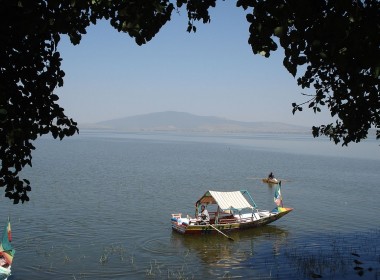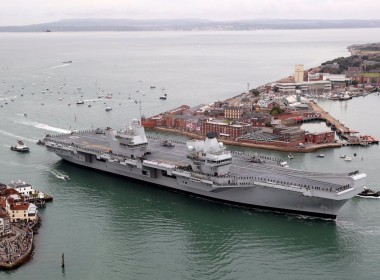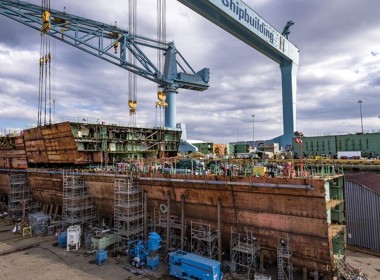EDITORIAL | Naval shipbuilding plans require re-setting

Now that Austal has decided not to participate in the consortium that will build the Royal Australian Navy’s offshore patrol boats (OPB), there are no Australian owned, non-government companies still involved as major contractors building Australia’s future warships.
All the remaining and potential lead contractors such as Navantia, Fincantieri, Naval, Thales, BAE, Lürssen, Civmec, et al are foreign owned and, in some cases, foreign government controlled.
Austal is Australia’s largest and most experienced locally owned warship builder. It has built numerous vessels for the United States Navy and has produced many successful patrol boats for the RAN, Border Force and for foreign governments such as Oman, the Philippines and the Pacific islands.
It has also built large numbers of very successful fast ferries, OSVs and other craft, mostly for export. It is, by any measure, a very successful shipbuilder of both warships and commercial craft. Apart from innumerable fast ferries and the ongoing production of America’s Littoral Combat Ships, Austal is building a series of 19 Pacific Patrol Boats for the Australian Government to distribute to our island neighbour nations. While it is focused on aluminium, it can also build in steel. It has extensive experience in the tricky business of dealing with navies and their government masters.
So, obviously, Austal is a company that knows what it is doing in the field of naval shipbuilding. As, quite clearly, its directors are not stupid, it must be asked why such an important local company is no longer bidding for or participating in any of our many planned major naval shipbuilding projects?
“By what strange reasoning was it decided that Adelaide should be the naval shipbuilding capital of Australia?”
It should also be asked why none of our other successful local shipbuilders such as Incat and Richardson Devine Marine are bothering even though Incat, particularly, has extensive experience working with the US Navy? Anecdotally, I understand that they feel that dealing with the Australian Government is simply just not worth the trouble. I strongly suspect that is the answer in the Austal case.
I suspect, also, that the crazily convoluted production process for the OPBs, whereby the first two boats were to be built at ASC in Adelaide and the remainder at Henderson in Western Australia, finally put Austal off.
That is just another manifestation of my increasingly well-proven theory that Canberra is using our warship building projects primarily for welfare rather than warfare objectives. In other words, the whole 30-year and $100 billion, or whatever, programme is primarily aimed at retaining Christopher Pyne’s and a couple of other marginal South Australian Federal parliamentary seats.
The last federal election proved the folly of such blatant voter bribery. The South Australian voters greedily bit the hand that fed them! Any rational cost/benefit analysis of that irrational and ill-fated political manipulation would show how ill-conceived it was.
Anyway, by what strange reasoning was it decided that Adelaide should be the naval shipbuilding capital of Australia? It certainly could not be based on satisfactory past performance.
For the past thirty odd years, countless billions of Australian taxpayer dollars have been poured into the bottomless pit of protecting South Australians from their own financial follies and lack of entrepreneurial initiative.
The car manufacturing scam was bad enough but this naval shipbuilding madness looks like stretching out the subsidies to that hopelessly mendicant state for generations.
The resultant warships are invariably delivered late and way over their original budgets. That, of course, is if they work at all. The notorious Collins-class submarines make you wonder. Even assuming all this lengthy list of new vessels eventually enter into service, and are ultimately serviceable, they will then most likely already be obsolete.
“If our practical and successful commercial shipbuilders won’t touch local naval shipbuilding, we should be asking, why?”
Although we have already spent untold billions on the ongoing and future warship projects, I strongly believe that we should stop everything right now before we waste any more billions of dollars.
Before continuing our warship building follies we should very carefully re-assess what our real defence requirements are. We should then, equally carefully, work out the most reliable and economical ways in which we should address those needs.
That process should be entirely focused on obtaining the best bang for the buck. It should be entirely free of any pandering to corporate or social welfare. The people of the other states should be freed of the need to prop-up the mendicants of South Australia with a welfare programme disguised as vital defence expenditure. That is just a very expensive scam and con.
If our practical and successful commercial shipbuilders won’t touch local naval shipbuilding, we should be asking, why? We should also ask why so many foreign warship builders are rushing in like bees around the honeypot?
Their advertising and promotional budgets aimed at securing the work are enormous. What is the attraction to them? Why are they so enthusiastic about building our warships when our excellent and very successful local builders are not? There is something very strange about that.
That is why we need to stop, re-think, re-assess and re-set the warship building programme on a much more realistic and economical basis. We have to separate welfare from warfare. The primary focus of naval shipbuilding should be on providing us, as quickly as possible, with the most appropriate, capable and necessary warships at the lowest possible cost. If that has to be done by building beyond South Australia, even overseas, so be it.


